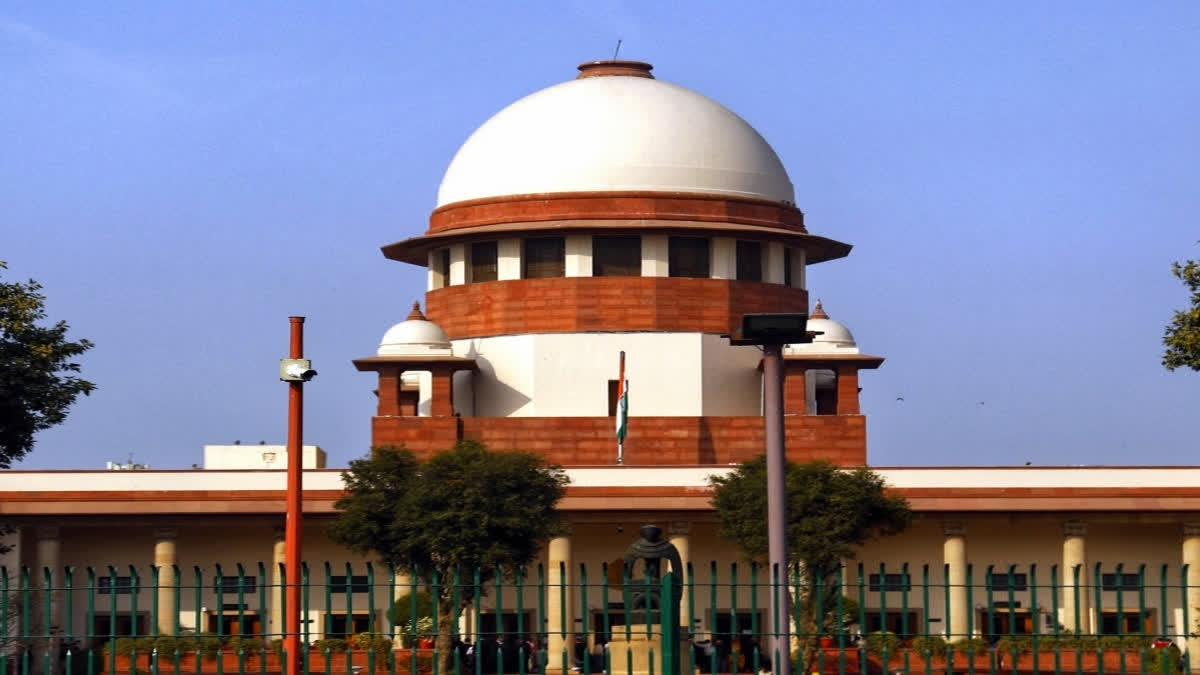New Delhi:The Supreme Court on Friday framed comprehensive guidelines for the effective and useful implementation of the Prohibition of Child Marriages Act (PCMA) in the country, saying in the instance of child marriage, the right to sexuality of a person is systematically dismantled, and the assault starts with the sexualisation of the child at a tender age.
The apex court said the Parliament may consider outlawing child betrothals which may be used to evade penalty under the PCMA.
A three-judge bench led by Chief Justice of India D Y Chandrachud and comprising Justices J B Pardiwala and Manoj Misra cited judgments to emphasise on the critical role of free and informed consent in marriage, particularly regarding child marriage.
The bench said child marriage deprives children of their agency, autonomy and right to fully develop and enjoy their childhood. "The right to free choice and autonomy in marriage encompasses three fundamental rights: the right to free and informed consent, the right against gender-based violence, and the right to sexual autonomy. These interconnected rights form the foundation for ensuring that marriage is a consensual partnership rather than a coercive arrangement, particularly when addressing the issue of child marriage," it said.
The CJI, who authored the 141-page judgment on behalf of the bench, said for women to exercise full, free, and informed consent as outlined in Article 16(1)(b) of Convention on the Elimination of All Forms of Discrimination against Women 1979 (CEDAW), they must possess the cognitive capacity to comprehend the meaning and responsibilities associated with marriage.
"We note that while the PCMA seeks to prohibit child marriages, it does not stipulate on betrothals. Marriages fixed in the minority of a child also have the effect of violating their rights to free choice, autonomy, agency and childhood. It takes away from them their choice of partner and life paths before they mature and form the ability to assert their agency," said the CJI.
The top court said the Parliament may consider outlawing child betrothals which may be used to evade penalty under the PCMA. “While a betrothed child may be protected as a child in need of care and protection under the JJ Act, the practice also requires targeted remedies for its elimination," it said.
The court stressed the right to childhood belongs to all sexes. Education - primary, sexual and life enhancing – is integral to the right to childhood and realisation of this right is crucial in dealing with the evils of child marriage, it added.
"Despite the enactment of the PCMA, the abysmal number of prosecutions and the continued existence of the practice violates the essence of this court's holding. These rights and values are equally iterated in international law to which India owes an obligation," said the bench.
The bench said the child marriages in the country affected the constitutional guarantees of the right to education, health, autonomy and others. It said the detrimental effect of not being educated affects girls most starkly since they are already vulnerable to agents of oppression on account of their gender.
The apex court said: "Child marriage is a social evil, and its commission is a criminal offence. Despite the near-universal agreement on the ills of child marriage, its commission and prevalence have been sobering. Child marriage is the phenomenon of children being married before they attain the minimum legal age under the law."
The CJI said when the woman is married as a child, her education is arrested in place during a pivotal period of brain development, and the minority of a woman's age at the time of her marriage has a heightened impact on her education.
"The right to primary education is a fundamental right expressly enshrined under Article 21-A," said the bench. The bench said duty of the State corresponds to the right to development of a child which is traceable to Articles 14, 19(1)(a), 21 and 15, and the right comprehends the ability of a child to exercise free speech, express authenticity and live a life of liberty and dignity.
The CJI said patriarchy offends the most basic rights of people by creating a hierarchy-based order of subjugation and static power distribution in society, and when an institution of patriarchy operates, it never denies rights in a unidimensional way.
